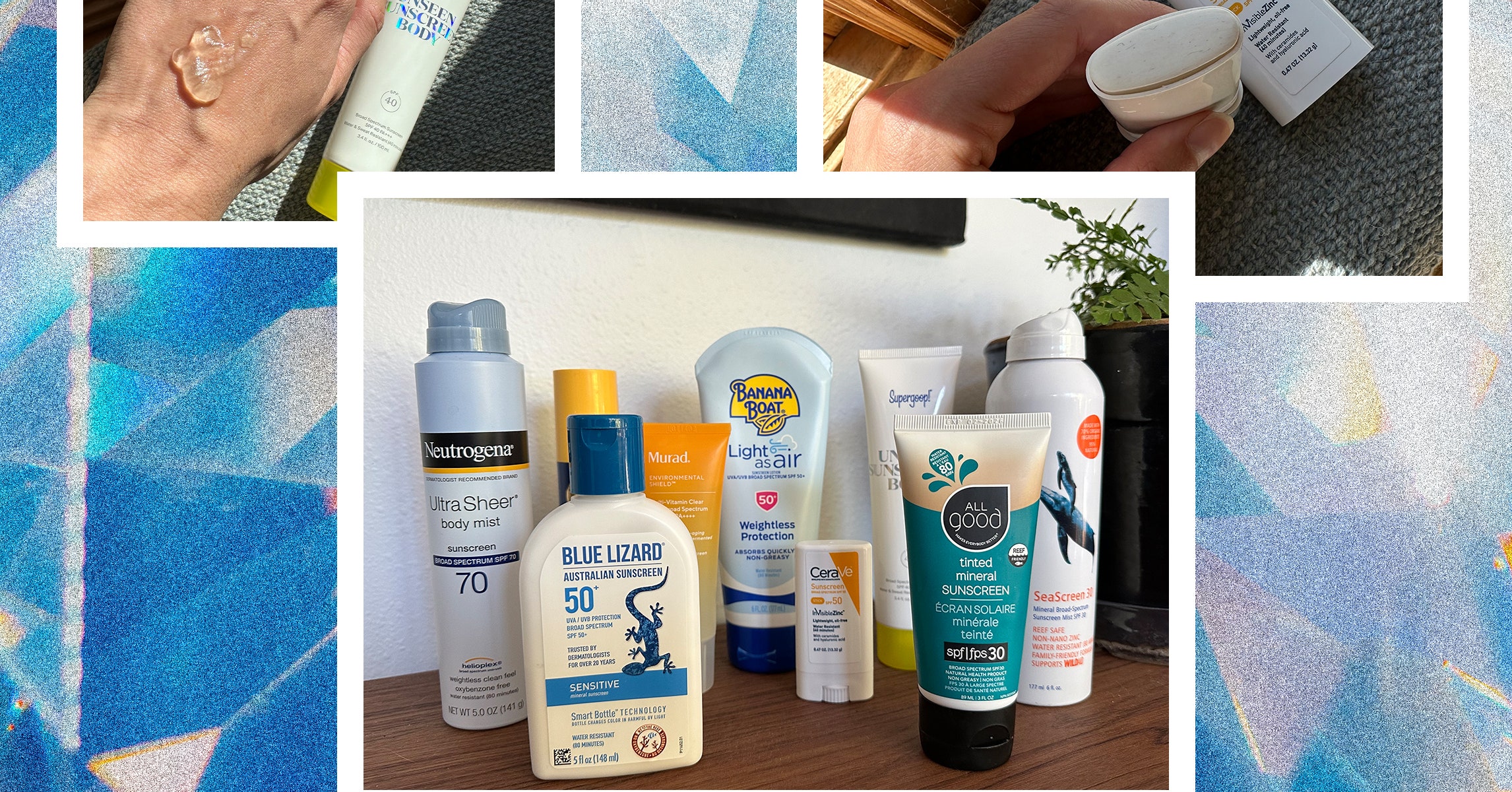
I wasn’t all the time a sunscreen devotee. Like so many millennials, I didn’t perceive the dangers of turning right into a lobster on the seashore after I was in highschool or spending hours in tanning beds main as much as promenade. I assumed I seemed higher with a tan, and sunscreen felt gross and made me get away. I do know higher now, and fortunately, sunscreens have come a good distance by way of system and really feel and may really be actually nice to put on. I put it on day-after-day now, hoping to undo my sun-worshiping sins, or at the very least forestall any extra harm.
“Sporting sunscreen is so essential as a result of it protects us from dangerous UV rays that may result in sunburn, untimely ageing, and even pores and skin most cancers,” says Ellen Marmur, a board-certified dermatologist and founding father of MMSkincare. “Due to these dangers, I like to recommend carrying sunscreen day-after-day. Whether or not you might be driving your automobile, going to the seashore, and even simply occurring an airplane, sunscreen performs a pivotal position in defending your pores and skin.”
OK, so we’ve established that sunscreen is essential. However when you decide to carrying it day by day, choosing a sunscreen is usually a really daunting activity. There are such a lot of choices on the market, they usually actually are very completely different. That can assist you type by way of all of the bottles on the cabinets, we talked with skincare specialists and road-tested all of them summer season. Right here’s what you could know that can assist you choose the suitable sunscreen for you, and our high picks for the most effective sunscreens on the market proper now.
For extra skincare, try our guides to Red Light Therapy Masks and Best Showerhead Water Filters.
Power up with unlimited access to WIRED. Get best-in-class reporting that is too essential to disregard for simply $2.50 $1 per 30 days for 1 yr. Contains limitless digital entry and unique subscriber-only content material. Subscribe Today.
What is the distinction between mineral sunscreen and chemical sunscreen?
There are two most important methods a sunscreen can present safety: bodily or chemically. Mineral sunscreens create a bodily barrier that sits on high of the pores and skin and displays UV rays away from you. Chemical sunscreens include elements that sink into the pores and skin and take up UV rays, changing them to warmth to be launched by your physique. Some sunscreen formulation use a hybrid of mineral and chemical elements.
There are professionals and cons to every type of sunscreen. Mineral formulations depart a white forged (except they’re tinted), and have a tendency to really feel thicker and heavier than chemical sunscreens. They’re usually gentler and are much less prone to trigger irritation, which makes them a great choice for people with delicate pores and skin, says Marmur. They’re additionally safer for the setting and don’t trigger as a lot harm to coral reefs.
Chemical sunscreens, then again, don’t depart a forged and really feel lighter on the pores and skin. Since they sink in deeper, you may discover that they maintain up higher throughout sweaty actions, says Marmur. The downsides? Sure elements in chemical sunscreens may cause pores and skin irritation for some.
“Avobenzone destabilizes when it is uncovered to mild and is a doable explanation for dermatitis,” says Marmur. Some merchandise embrace stabilizing brokers to assist forestall this. Two different chemical sunscreens, oxybenzone and octinoxate, have been banned in Key West and Hawaii for his or her detrimental influence on marine life, and there are considerations about these elements resulting in hormone disruption in people, although there isn’t ample evidence to assist this.
Is the next SPF ranking all the time higher?
SPF stands for solar safety issue, and the ranking refers particularly to how properly a product fights UVB rays. “The distinction in proportion of safety between SPF 30 and SPF 100 is sort of small, and doubtless a lot smaller than you anticipate,” says Marmur. For instance, SPF 30 ensures that 97 % of UVB radiation is being blocked, whereas SPF 50 boosts that proportion to 98, and SPF 100 ups it to 99 %. So, greater is technically higher, however there isn’t an enormous distinction within the safety you’re getting.
“That being mentioned, I’d suggest utilizing sunscreen with at the very least SPF 30, because it typically has an identical proportion of safety in comparison with an SPF as giant as 100,” says Marmur. Regardless of the SPF ranking, you desire a product that gives broad spectrum safety towards each UVA and UVB rays.
What elements do you have to keep away from in sunscreen?
Given what we find out about sunscreen and the security of widespread elements, “the advantages of carrying it considerably outweigh the dangers,” says Marmur. Not solely is carrying sunscreen frequently a matter of security, but it surely’s top-of-the-line issues you are able to do to forestall untimely ageing. “Good SPF habits now are like cash within the financial institution, insuring towards costly lasers to take away the solar harm or worse, towards surgical procedure and scars from pores and skin cancers,” says Marmur.
Lots of the considerations raised about oxybenzone are linked to research completed in rats, by which the animals have been fed oxybenzone. In line with one evaluation from the Archives of Dermatological Research, it might take a human 277 years of oxybenzone sunscreen use to attain an equal dose of the chemical that induced adversarial results within the rats. Oxybenzone can be current in lots of merchandise individuals use, like nail polish, hairspray, and plastics. “There are zero reported instances of confirmed adversarial systemic reactions to sunscreens,” says Marmur. “However there are tens of millions of pores and skin cancers yearly, instantly linked to UV radiation from the solar damaging the DNA of the pores and skin.”
That being mentioned, there are specific elements it is best to keep away from.
Marmur recommends avoiding added perfume in sunscreen merchandise, particularly for people with delicate pores and skin. Avobenzone, a standard chemical sunscreen ingredient, may cause pores and skin irritation for some individuals. Retinyl palmitate, a type of vitamin A that’s utilized in some sunscreens, has been postulated to extend the chance of pores and skin most cancers when it is uncovered to daylight. Oxybenzone and octinoxate are notably dangerous for coral reefs. Not one of the sunscreens on this record include oxybenzone, octinoxate, or retinyl palmitate.
What to find out about phrases like “reef-safe”
Reef-safe and reef-friendly aren’t regulated designations, so manufacturers can use the phrases as advertising instruments with out getting any certifications, they usually don’t imply a product received’t trigger any hurt to the setting. Nonetheless, there are specific sunscreens which can be much less impactful on marine ecosystems than others. Generally, mineral sunscreens are much less damaging to coral than chemical ones.






